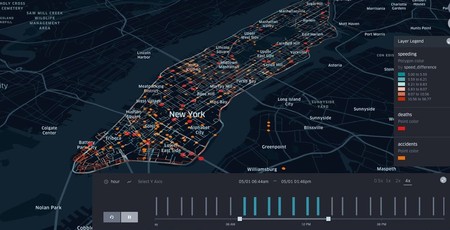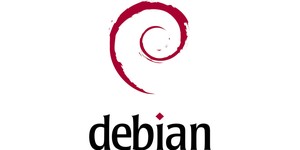Linux Foundation launches Urban Computing Foundation
May 16, 2019 | 10:54
Companies: #facebook #google #here-technologies #ibm #linux-foundation #uber #university-of-california-at-san-diego #urban-computing-foundation

The Linux Foundation, best known for its stewardship of the kernel which bears its name, has announced it is branching out into the world of smart cities and autonomous vehicles through the formation of the Urban Computing Foundation.
Originally a hobby project of then-student Linus Torvalds, the Linux kernel has grown into one of the most widely-deployed operating system kernels in history. It's used in everything from games consoles to pacemakers, supercomputing to routers, and now the Linux Foundation is looking to push it still wider with the formation of the new Urban Computing Foundation.
'During moments of both technology disruption and opportunity, open development is critical for enabling interoperability and speeding adoption,' claims Jim Zemlin, executive director of the Linux Foundation. 'The Urban Computing Foundation is poised to provide the compatibility tools and resources for developers to create software that can map out and operate technology services in any given urban area, ensuring safety and equitable access to transportation.'
The UCF counts among its initial contributors developers from Facebook, Google, Here Technologies, IBM, Uber, and the University of California at San Diego. The Foundation aims to serve as a neutral forum for the work these, and others, perform in the field of 'urban computing' - computing which aims to bridge the divide between engineering, visualisation, and traditional transportation systems analysis.
The Foundation's initial project is Kepler.gl, a geospatial analysis tool created by Uber and designed for use with large-scale data sets, which aims to make it easier for non-developers to create meaningful visualisations of location data and which already counts companies including Airbnb, Limebike, and Mapbox among its users.
'As a founding participant with the Urban Computing Foundation, Uber is honoured to contribute Kepler.gl as the initiative's first official project,' says Uber's Travis Gorkin. 'Technologies like Kepler.gl have the capacity to advance urban planning by helping policymakers and local governments gain critical insights and better understand data about their cities.'
'Civic organisations and citizens alike need ready access to data about their cities to make better decisions about transportation, construction and energy consumption,' adds Chris DiBona, Google's director for open source and science outreach. 'The Urban Computing Foundation's mission to make that possible is closely aligned with Google's approach to open data. Making it easier to access, visualize and process these kinds of large data sets is indeed at the heart of Google Cloud. We are excited to join the Urban Computing Foundation as a founding contributor and work on our shared goal of improving the world we live in.'
More information is available on the Urban Computing Foundation website.

MSI MPG Velox 100R Chassis Review
October 14 2021 | 15:04








Want to comment? Please log in.